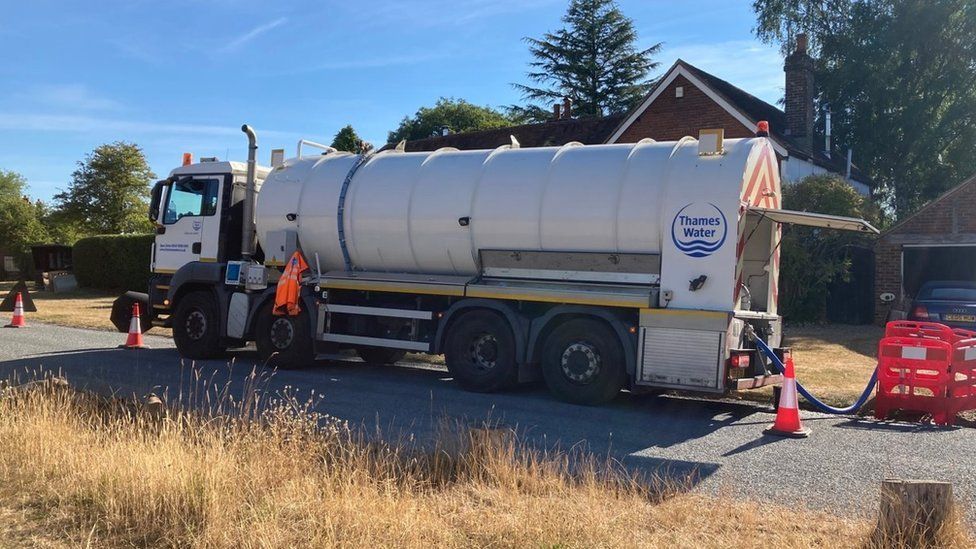Thames Water finds E. coli bacteria in Stokenchurch reservoir
- Published

Dozens of homes in were left without water because E. coli was found in a nearby reservoir.
Positive samples of the bacteria were found in Stokenchurch reservoir in Buckinghamshire by Thames Water, between 5 and 7 August.
A Thames Water spokesperson apologised for the disruption and said the reservoir had since been disinfected.
It comes after the water supplier confirmed it planned to introduce a temporary hosepipe ban "in the coming weeks".
The BBC previously reported taps were running dry in Northend due to "technical issues" at the reservoir.
Low water pressure and lack of supply meant bottled water was delivered by Thames Water and residents had tankers parked outside their houses.
The firm has now confirmed E. coli was found in two samples in one half of the Stokenchurch reservoir during a routine water quality sampling process.
To protect customers, Thames Water said it shut the affected half of the reservoir to the water mains and used another water plant in Chinnor to maintain local supplies.
The company also notified the UK Health Security Agency (UKHSA) and the Drinking Water Inspectorate (DWI).
Dr Gina Brown, a radiologist who lives with her elderly parents, previously told the BBC the village's water shortage had been a "recurrent" problem during hot weather.
She said: "I think it's the worry about how my parents are going to manage because I brought them here to live with me, to keep them safe.
"And I feel like I've almost, in some ways, made it worse for them."
'No health risk'
A Thames Water spokesperson said: "We believe the failed samples may be linked to a recently installed sample pump at the reservoir and not the actual water supplied to customers."
They confirmed samples were also taken downstream of the reservoir and all samples came back clear.
They added an internal inspection had taken place which identified no "significant" defects, as well as additional precautionary work to ensure the integrity of the reservoir.
"We have disinfected the reservoir prior to returning it to service as well as ensuring that two further clear samples have been taken, all in line with our normal procedures," they continued.
"We would like to reassure our customers that there has been no risk to public health."
Follow BBC South on Facebook, Twitter, or Instagram. Send your story ideas to [email protected].
Related Topics
- Published10 August 2022
- Published9 August 2022